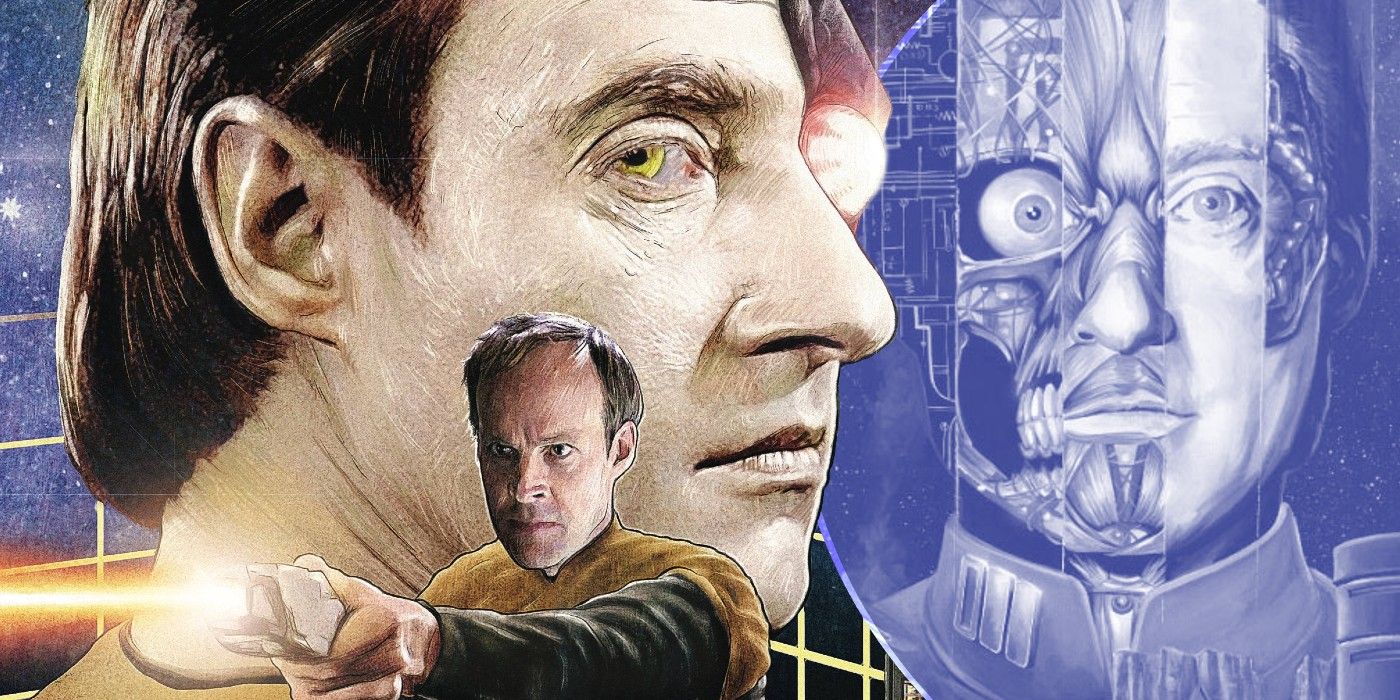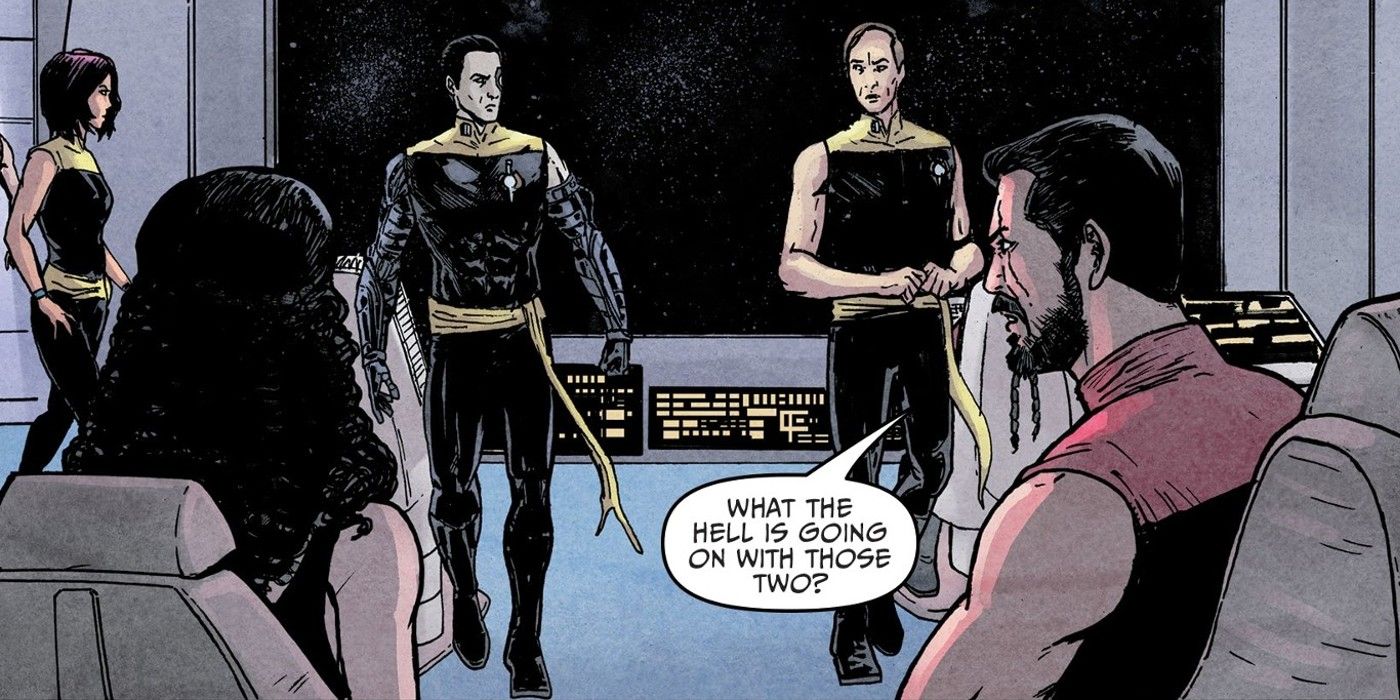Warning: spoilers ahead for Star Trek: The Mirror War #2!
The evil version of Commander Data in Star Trek's upside-down mirror universe may be a robotic warrior as opposed to his peaceful counterpart from The Next Generation, but he also possesses far more human traits. Many fans view Data as one of the most compelling characters in the entire franchise for his unwavering endeavor to become more human even though he's an artificial lifeform. And yet, his evil "twin" seems to have been more successful in achieving this goal.
Throughout Star Trek: The Next Generation, Data tries - and usually fails - mimicking human behaviors and forming a variety of relationships, from friendships to even sexual partnerships. Although there are times when he displays actual human tendencies or seems to grasp the nuances of humanity, these instances are never by design and usually occur just by happy circumstance. All of his experiments, however, never conflict with his duties or his ability to process and execute orders. This is not the case with the evil version of Data, as he struggles processing betrayal for the first time in Star Trek: The Mirror War #2 by writers Scott and David Tipton and artist Gavin Smith.
Like in the TV show, Data's evil counterpart forms a relationship with the evil Reginald Barclay but when the latter deserts their universe to infiltrate the U.S.S. Enterprise D in the regular Star Trek universe, the artificial lifeform views this as a betrayal and is actually affected by it. He either fails to compute or actually ignores orders from Barclay during a battle against a Klingon warbird, a failure that almost leads to the destruction of their vessel. It's only after Data is called out for not listening to Barclay that the android implements his friend's strategy, preventing their demise. The prospect of both scenarios is fascinating, as Data would say, because either Data is so affected by a human emotion that he can't function properly or he exhibits an actual human response to betrayal by exercising a technique many humans would choose after being the victim of treachery: the silent treatment.
This surprising development aligns the evil Data more with his good counterpart's android brother Lore, who was designed with advanced emotions. But because these functionalities inevitably transformed him into an evil and violent monster, Data was constructed later on without any destabilizing emotions. It's obvious that giving Lore the capability to feel as humans do is what twisted his programming, and so it shouldn't come as a surprise that Data's evil counterpart would therefore struggle with human emotions as well. But events after The Next Generation TV show prove it's much more complicated than that.
Data later takes a massive stride towards becoming more human in the film Star Trek: Generations when he installs an Emotion Chip into his neural net. Data greatly struggles with the wave of feelings that engulf him, including fear, which prevents him from saving his friend Geordi La Forge, and being unable to cope with the guilt that comes as a result, making it difficult for him to focus on his work, much like his evil counterpart in The Mirror War. In the end, Data never becomes a villain like Lore nor the evil version of himself in the upside-down universe despite having emotions. He even selflessly sacrifices his life to save his crew and friends in Star Trek: Nemesis. Although this discrepancy could be blamed on the fact that Data has the ability to deactivate the Emotion Chip at any time, it's highly unlikely that emotions are able to outright corrupt Data. Despite this, Star Trek: The Mirror War offers up the dark twist that corruption seemingly does make Data more human, albeit in all the wrong ways.


